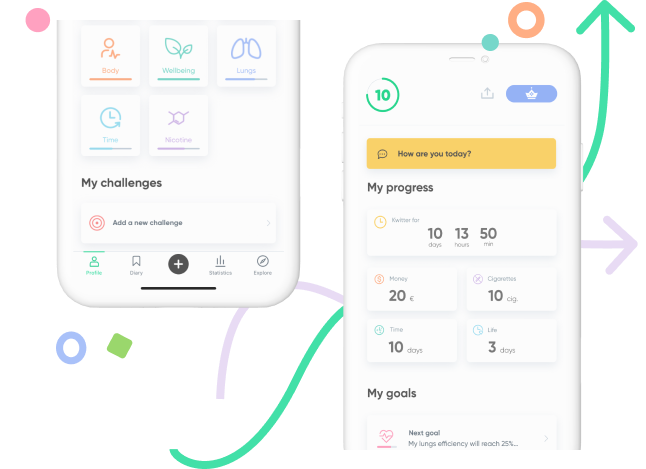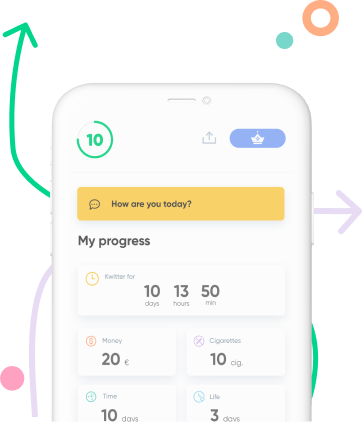February 19, 2019
Tips
At what point can you consider yourself as « addicted »?
Have you ever wondered if you were an addict — to cigarettes or to anything else? In this article, Kwit helps you answer this question.
One can be addicted or dependent without really knowing it. Sometimes, we can have trouble acknowledging it because it affects our image. However, it is important not to deny reality. Also, the first step is to get to know what addiction is, what we are missing and what are the warning signals we should be attentive to. So when should we consider ourselves addicted? Let's take a look at the situation.
Addiction - definition et functioning
According to the French MAAD DIGITAL alphabet (Média d’Information Scientifique sur les Addictions), this is how the addiction is defined:
« A process by which a behavior, which can work both to create pleasure and to relieve inner discomfort, is used in a mode characterized by repeated failure to control that behavior and the persistence of that behavior despite significant negative consequences. Addiction is therefore a brain disease defined by an addiction to a substance or an activity, with harmful consequences. Addiction requires medical and/or psychological care. »
Addiction according to the American Psychiatric Association
The diagnosis of addiction (or dependence) is based on well-defined criteria established by international mental health authorities. These 11 criteria are listed in a manual (latest edition 2011): "Diagnostic and Statistical manual of Mental disorders (DSM V)" and established by the American Psychiatric Association.
These criteria include loss of self-control, a correlation between addiction and school or work activities and continued use despite knowledge of the harmful effects.
Thus, 2 to 3 criteria are the sign of a weak addiction, 4 to 5 criteria, a moderate addiction and 6 or more criteria, a severe addiction.
Addiction according to the World Health Organization (WHO)
Another international classification is that of the WHO, which establishes 6 criteria for dependence.
Thus, to establish the diagnosis of addiction, at least 3 of the following events must have been present at the same time during the last year:
A powerful or compulsive desire to use a psychoactive substance.
Difficulties in controlling the use of the substance (start or interruption of consumption or levels of use).
Physiological withdrawal syndrome when the person reduces or stops the consumption of a psychoactive substance, as evidenced by the occurrence of a withdrawal syndrome characteristic of the substance or the use of the same substance (or a related substance) to relieve or avoid withdrawal symptoms.
Demonstration of tolerance to the effects of the psychoactive substance: the subject needs a greater quantity of the substance to obtain the desired effect.
Gradually abandoning other sources of pleasure and interest in favor of the use of the psychoactive substance, and increasing the time spent obtaining the substance, consuming it, or recovering from its effects.
Continued use of the substance despite these clearly harmful consequences. Efforts should be made to clarify whether the subject was aware, or should have been aware, of the nature and severity of the adverse consequences.
You are dependent, what can you do?
You realize that you have these symptoms and you meet the criteria that classify you as a dependent person? Then the self-diagnosis is clear. It may be time for you to react and get out of this dependence to regain your autonomy, your freedom and your health. It is often a difficult process that requires help. If your addiction concerns cigarettes, feel free to download Kwit to be accompanied and motivated daily and in a caring way.





